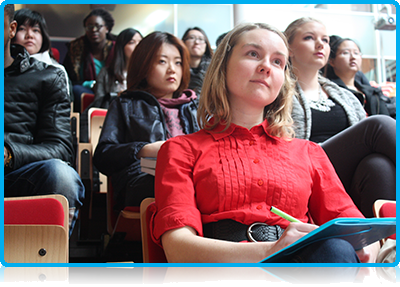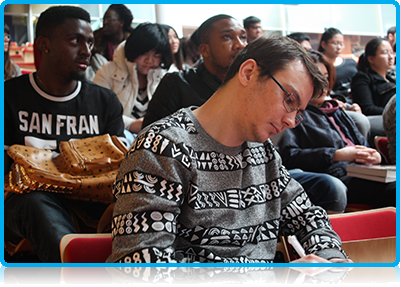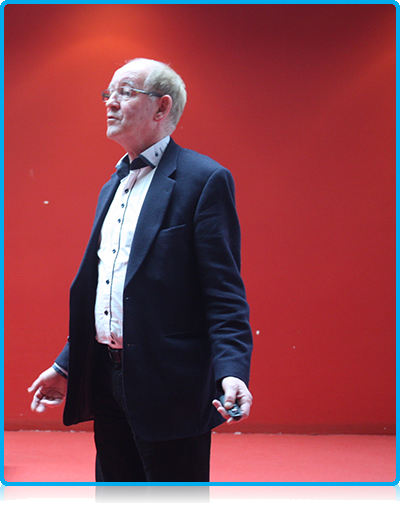Wittenborg Online News!
Netherlands an Attractive Alternative for Russian Students Facing Fallout from Russia's Involvement in the Ukraine crisis
Netherlands an Attractive Alternative for Russian Students Facing Fallout from Russia's Involvement in the Ukraine crisis
 Netherlands an Attractive Alternative for Russian Students Facing Fallout from Russia's Involvement in the Ukraine crisis
Netherlands an Attractive Alternative for Russian Students Facing Fallout from Russia's Involvement in the Ukraine crisis
Universities in the Netherlands is seen as an attractive and cheaper alternative for Russian students wishing to study abroad, but feeling stranded by the depreciation of their currency caused by the immense political pressure Russia is facing over the crisis in Ukraine.
 Wittenborg University, one of the most international universities in the Netherlands, is gearing up to receive more Russian students. The University already has a number of Russian students and several from former USSR countries like Kazakhstan, Georgia and Ukraine.
Wittenborg University, one of the most international universities in the Netherlands, is gearing up to receive more Russian students. The University already has a number of Russian students and several from former USSR countries like Kazakhstan, Georgia and Ukraine.
Wittenborg CEO, Peter Birdsall, just returned from the ICEF Workshop in Moscow where he met with at least 45 agents recruiting Russian students for studying abroad.
Birdsall yesterday told IBA students at Wittenborg doing a Project Week assignment on Russia, that the UK is traditionally the most popular study destination for Russian students, alongside Switzerland for those studying hospitality.
However, due to economic restrains caused by the political pressure Russia is under from the United States and the European Union because of its involvement in the Ukraine, students are looking for alternative study destinations like the Netherlands. The Netherlands has just been named as one of the top 6 countries with the most prestigious universities in the world.
 Birdsall said in the UK foreign high school students can pay up to £40,000 per annum in boarding school fees, including accommodation. Varsity students in the UK face a bill of more £9 000 per year for tuition fees while it is considerably lower in the Netherlands. At Wittenborg the tuition fee for all its bachelor programmes is €6,300 per year. UK lecturer, Bob Dyson (left) gave his take on the Russian market, Bob has for years done business around the world with countries including former CIS states.
Birdsall said in the UK foreign high school students can pay up to £40,000 per annum in boarding school fees, including accommodation. Varsity students in the UK face a bill of more £9 000 per year for tuition fees while it is considerably lower in the Netherlands. At Wittenborg the tuition fee for all its bachelor programmes is €6,300 per year. UK lecturer, Bob Dyson (left) gave his take on the Russian market, Bob has for years done business around the world with countries including former CIS states.
One of the most compelling speakers at the ICEF Workshop was Samuel Vetrak, CEO of Studentmarketing, who delivered the latest figures on the Russian student market and the way forward in a presentation called “Russia – Market at Crossroads?”.
According to Vetrak Russia has the 12th highest number of students abroad (51 171). He confirmed that the weakened ruble is currently the main barrier for Russians to study abroad though there is also a fear of hostility.
From 2011 to 2013 the UK was the most popular study destination for Russian students, reaching about 170 000 in 2013. For Russian tertiary education students Germany (20%) was the most popular destination in 2014, followed by the US (9%), France (8%), the UK (7%) and the Czech Republic (6%).
Other conclusions reached by Vetrak was that the limited demand for an education abroad come mostly from the upper middle class of Russian society. “Russian customers now place a higher level of importance on programme price," he said. There is also greater interest in scholarships, discounts and special offers.
Vertrak envisions a further decline in the Russian student market, though not so steep.
As part of Project Week Block 6, Wittenborg IBA students in phase 1 and phase 2 will do research on the recruitment of Russian students at Wittenborg.
WUP 5/4/2015
©WUAS Press
by Anseca Smith & WUP
541 words